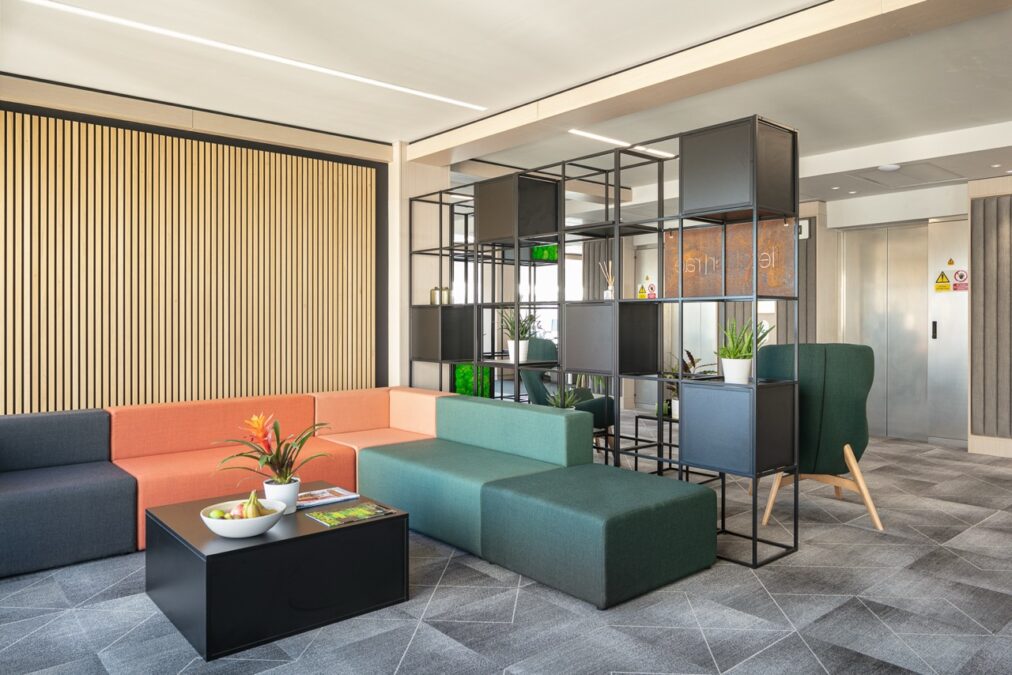We need to stop pretending that traditional furniture is “built to last.”
Sure, it might survive a few years. But what happens when the space changes?
Team grows? Office layout shifts? Suddenly, that fixed three-seater or oversized wall unit becomes dead weight — literally.
This is where modular furniture flips the script.
Sustainability isn’t just about materials. It’s about adaptability.
We talk a lot about recycled fabrics and FSC-certified timber — and yes, those things matter. But what gets less airtime is how much waste comes from inflexibility. If a product can’t evolve with a space, it gets scrapped or shoved in storage. That’s not sustainable. It’s just slow waste.
Modular design challenges that.
A modular sofa can be broken down, reconfigured, rebuilt.
A grid-based shelving system can be expanded, contracted, even re-purposed as zones shift and headcounts rise or fall.
In short: modularity keeps products in use longer — and that’s the most sustainable thing any piece of furniture can do.
One system. Infinite outcomes.
Whether it’s reconfigurable soft seating in a breakout area, or a scalable shelving system used to divide space without building walls — the beauty of modular furniture is its open-endedness. You’re not locked into a single layout or aesthetic. The same product can flex across different clients, spaces, or even sectors.
That’s a win for designers.
A win for procurement teams.
And a massive win for the planet.
Less landfill. More lifecycle.
We’ve seen it time and time again: companies moving offices, downsizing, or pivoting their layout strategy… and tossing out perfectly good furniture because it no longer fits.
Modular furniture resists that throwaway culture.
You can refresh it with new modules or finishes. You can re-home it internally. You can even spec it as part of a circular scheme.
Compare that to fixed-format furniture, where once it’s done, it’s done. No second chances.
So, is modular furniture more sustainable?
Yes — not just in theory, but in practice.
Because it’s not just about what you buy. It’s about what you don’t have to replace three years down the line.
That’s real sustainability.
That’s design with longevity baked in.
And that’s exactly why more designers, consultants, and procurement teams are leaning into flexible, modular systems — whether it’s for seating, storage, or zoning.
Want to talk about how modular options could help futureproof your next project? Get in touch with us on 01295 221353 or at sales@ornfurniture.com.
📸 Brown & Bancroft

